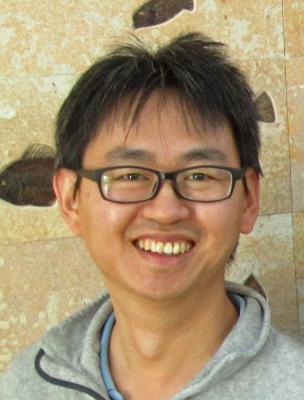Dec 1 2015
Still early in his career, Fan-Chi Lin has distinguished himself by the wide range of his research contributions, particularly in the area of using ambient noise to construct images of the Earth's crust and upper mantle. Since his Ph.D. was awarded in 2009, Lin has become one of the originators and leading experts on this type of imaging.
 This is Fan-Chi Lin. (CREDIT: Courtesy University of Utah)
This is Fan-Chi Lin. (CREDIT: Courtesy University of Utah)
For his work, the 37 year-old assistant professor at the University of Utah will receive the Seismological Society of America's (SSA) 2015 Charles F. Richter Early Career Award, at the society's annual meeting 20-22 April 2016 in Reno, Nevada.
Lin is one of a few researchers around the world to establish seismic tomography as a discipline with strong theoretical foundations and practical applications. Similar to how a CAT scan uses special x-rays to reconstruct an image of the internal human body, Lin and others use ambient seismic noise to reconstruct internal structures of the Earth. Ambient seismic noise is often thought of as the "junk" signal captured by a seismometer, a signal caused by ocean waves, winds and other atmospheric events and even the movements of traffic or heavy machinery.
Lin has published 26 papers since receiving his Ph.D., demonstrating ways to use ambient seismic noise and surface waves excited by earthquakes to map out structures in the crust and upper mantle with unprecedented accuracy and with meaningful estimates of uncertainty.
In 2013, Lin and his colleagues showed how seismic waves that travel through the Earth's core could be identified using coda waves, the diffuse, scattered seismic energy signals, created by large earthquakes. Their method has been used to create a detailed new image of the Earth's inner core. Also in 2013, Lin and colleagues published a paper that provided images of the shallow crust around a Southern California fault zone, using ambient noise collected by a petroleum services company.
In 2015, Lin and colleagues used seismic tomography to demonstrate the extent and detailed shape of a vast magma "plumbing system" below Yellowstone National Park's "supervolcano."
The approach developed by Lin "has become wildly popular in global geophysics, essentially freeing seismologists from the geographically biased sampling provided by earthquakes," said Keith D. Koper, a professor of geophysics and director of the University of Utah Seismograph Stations. "Ambient noise imaging is also becoming increasingly popular in exploration geophysics, where it provides a cheaper alternative to explosives and vibroseis trucks, and can be easily applied in populated regions."
Lin received his bachelor's degree in 2000 from National Tsing Hua University in Taiwan and his master's degree in 2005 from Drexel University, before completing his Ph.D. at the University of Colorado at Boulder. He was awarded a Director's postdoctoral fellowship at Caltech's Seismological Laboratory in 2011.
The Charles F. Richter Early Career Award honors outstanding contributions to the goals of the SSA by a member early in her or his career. Nominees must have been awarded their most recent academic degree no more than six years prior to April 18 of the year that she or he is selected for the award, and be not more than 40 years old on April 18 at the time of the award selection. The April 18 date commemorates the anniversary of the 1906 San Francisco earthquake.
The call for nominations for next year's Early Career award, along with a list of past winners, are available at the Seismological Society of America's website.